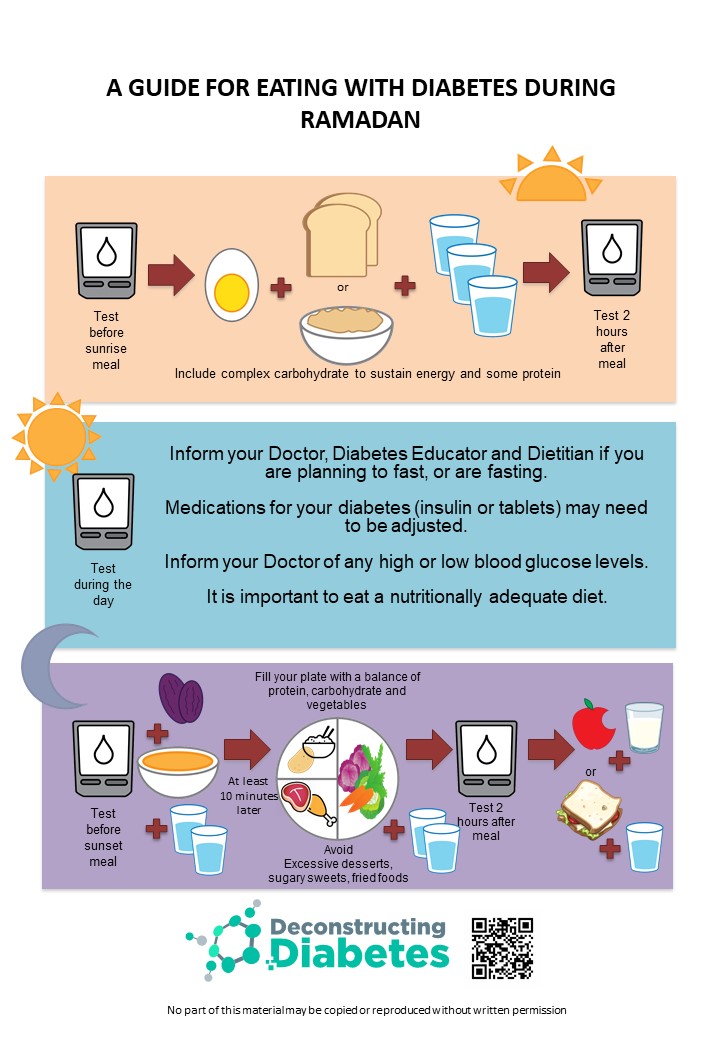How to eat with Diabetes during Ramadan (Infographic)
A guide to meal times, hydration and blood glucose testing during Ramadan
With so many of my patients asking me about how to eat during Ramadan, I made this infographic.
If you have diabetes and are fasting during this time, it's important that you speak to your Doctor, Diabetes Educator, and Dietitian.
Regular glucose testing over the day should be done,as pictured. You may experience high or low blood glucose levels during the day, at night and after meals. If you are on medications for your diabetes, these may need to be reviewed by your health care team.
It is important to maintain adequate nutrition and hydration, and you may need a dietitian review to assist with this.
The meal before sunrise should be the largest meal, and include enough water, some complex carbohydrate for energy (grain bread, rolled oats, rice) and a source of protein. This will help to provide energy, nutritional needs and help sustain your blood glucose levels over the day).
After sunset, you can break the fast with some water and 2-3 dates, and some soup which will provide a quick energy burst. Your evening meal to follow should include a balanced meal as pictured. The plate pictured has 1/4 carbohydrates, 1/4 protein and 1/2 fresh or cooked salad or vegetables.
Try to avoid excessive intake of desserts, sweets, fried and salty foods.
After the main meal, again test blood glucose levels.
For an evening snack, you can include more water, with some fruit, some milk, yoghurt or a sandwich.
It is important to eat the right type of complex or low glycemic index carbohydrates at meals and snacks. Examples include rolled oats grain breads, grain biscuits, basmati rice, fruit, pasta and potato.
The amount of carbohydrate also needs to be considered. This involves having enough for energy and blood sugar requirements, but not too much that these levels go too high.
Again, make sure you discuss fasting with your healthcare team.
Post blog script: This infographic, and further details of eating during Ramadan, including my contribution towards balancing glucose levels and dietary intake with diabetes can be found here:
https://www.sbs.com.au/food/explainer/how-balance-your-health-and-fasting-during-ramadan

